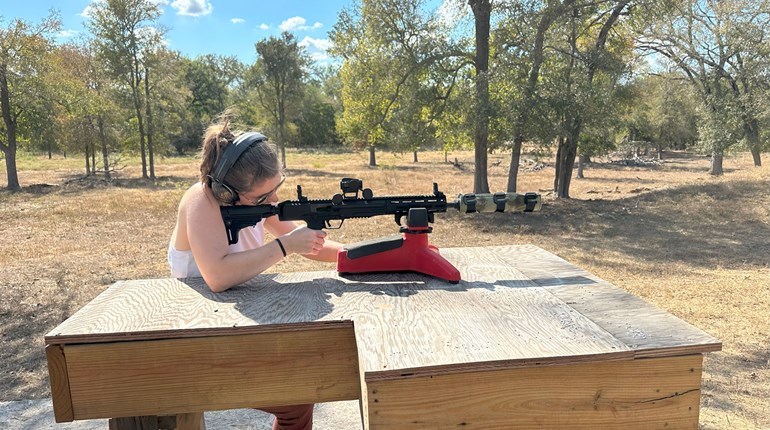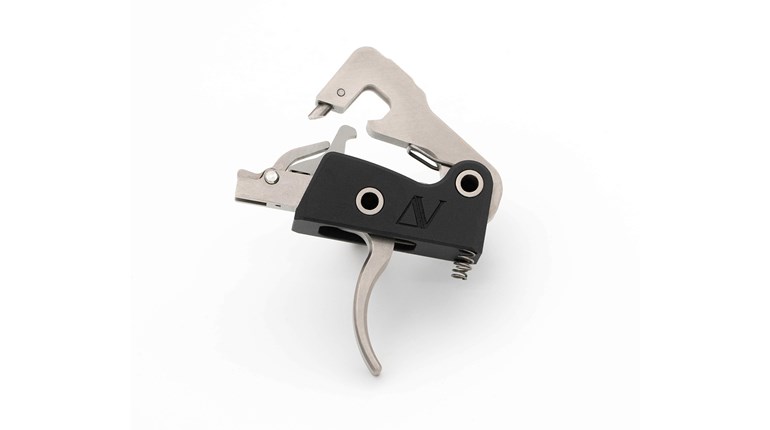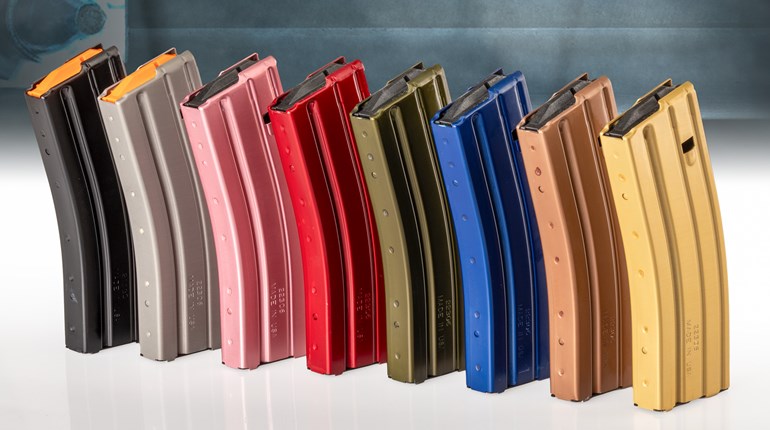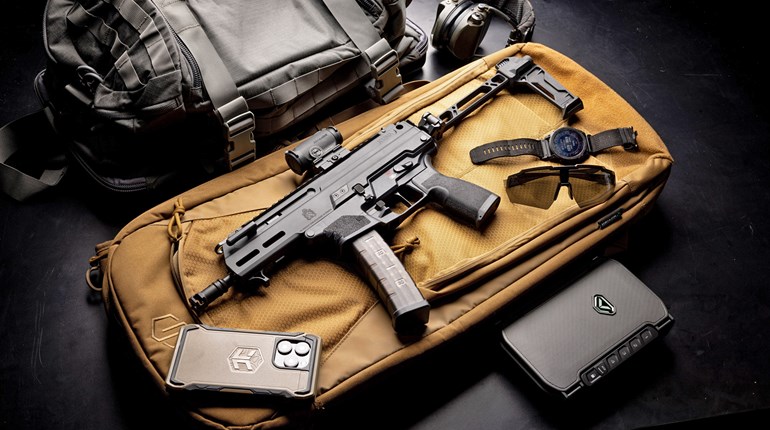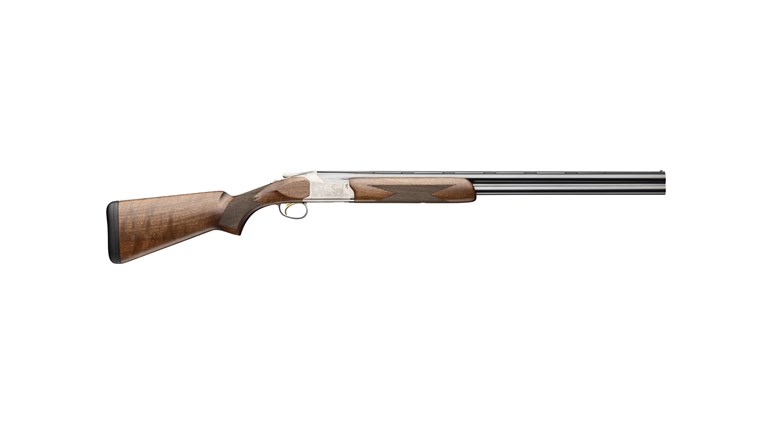
There's a mystique to anything long-distance, whether it's a radio transmission, a three-point shot from far behind the line or punching paper. Being successful in any of them requires overcoming a variety of obstacles, like static, a point guard in your face or in shooting's case, wind, fouling, barrel heat and mirage. When it finally comes together though, the excitement is addictive.
Hitting a small target at 500 yards may be lots of fun, but few rifles do it with the kind of consistency shooters demand. Those coming from DPMS Panther Arms are a rare exception though. The 20-year-old company has earned its long-range reputation by building tack-driving AR-15-style rifles, and today it's the second-largest producer of that platform.
One of its latest offerings is the Panther LR-204, which is chambered for .204 Ruger, a cartridge that's quickly becoming a staple with varmint hunters. When NRA Firearms Inventory Manager Dave Gledhill went on a prairie dog shoot with one of the new LR-204s last May, the tall tales he returned with piqued our interest.
The rifle he used was fitted with the optional JP Adjustable Trigger and topped with Nikon's Laser IRT 4-12x42 mm riflescope. Prairie dogs aren't exactly big targets, so I would have doubted his 542-yard, longest-hit claim, except the Nikon has a built-in rangefinder to confirm the distance. "I probably shot more than 2,000 rounds during the trip, many of them in the 250- and 300-yard range," said Gledhill. "At that distance nearly all were one-shot kills." It was the second shot that connected on that windless day 1,626 feet away.
The fact that the rifle never suffered a failure to feed, despite Gledhill forcing it to digest whatever loads the local sporting goods stores happened to be pushing, added emphasis to his testimonial. "The gun was a dream," he said. "It operated flawlessly and I never did clean it for the three full days I was there."
Things were a little different with the Panther LR-204 I tested, although the inherent accuracy was so obvious that every five-shot group grew more painful. Topped with a Bushnell Elite 4200 Tactical 6-24x50 mm riflescope, I started with Hornady's 32-grain V-Max load at 100 yards on a calm day. Three of the five holes were touching in nearly every target, but two wayward bullets would show up every time.
Surmising my caffeine addiction was the culprit, I enlisted the aid of Spec. Greg Outland, who is stationed at Fort Bragg, NC. Again cloverleafed shots were produced, but with the same rogue pair. The barrel was cool, fore-end pressure didn't vary and the fliers seemed to appear at random times instead of always on the first or last shots. After a quick inspection we ruled out fouling, although we both agreed it may need a little more breaking in to get that DPMS accuracy stride.
Shooting Illustrated Associate Editor Adam Heggenstaller later tightened the groups significantly with 40-grain V-Max loads, despite the fact that the DPMS website explains, "For best accuracy, the DPMS LR-204 is designed to fire 32-36 grain bullets only." Throwing out two fliers from his five, five-shot groups, it averaged 1 1/4 inches at 100 yards. The last group wound up with three holes touching, adding evidence to the fact that the gun needs to be shot before it lives up to the company's legend.
The stock trigger may have also been a contributing factor. Let off weight was a stout 9 pounds. Heggenstaller and Outland didn't like it at all, claiming it had a lot of travel and creep—I did, but then I learned to shoot on an old Mauser whose trigger assembly was recovered from the Bismarck. The J.P. Adjustable Trigger assembly is only $139.95 more, so it's probably a pretty good investment.
As for recoil, Gledhill summed it up best when he said, "What recoil?" The 10 1/4-pound gun certainly soaks up what little pounding the .204 Ruger has to offer, and what it doesn't take care of, the AR-15's gas-operation does. Once I started shooting, it was hard to stop.
The LR-204 is a well thought out rifle. A space-age, carbon-fiber looking handguard ensures things won't get too hot for high-volume shooters. It also minimizes mirage if the fluting on the free-floated, 24-inch bull barrel doesn't quite keep things cool enough.
The upper receiver is A3-style, and of course comes with a dust cover and shell deflector. Both the upper and lower are forged from 7075-T6 aircraft aluminum alloy and hard-coat anodized per Mil Spec and finished with a black Teflon to fight the elements. The carrier and rotating bolt are heat-treated and plated.
Overall length is 42 7/16 inches. The stock is A2-style and it features the aluminum door assembly. Optics can be mounted on the Picatinny rail, and the pistol grip in the test rifle was target style, which makes it ideal for bench resting or those long-range prairie dog shots. About the only complaint I had—other than not being able to hold onto the gun long enough for it to finally find its real accuracy potential—is that the 30-round magazines are longer than the pistol grip, which meant I had to find another sandbag to rest it on during testing.










